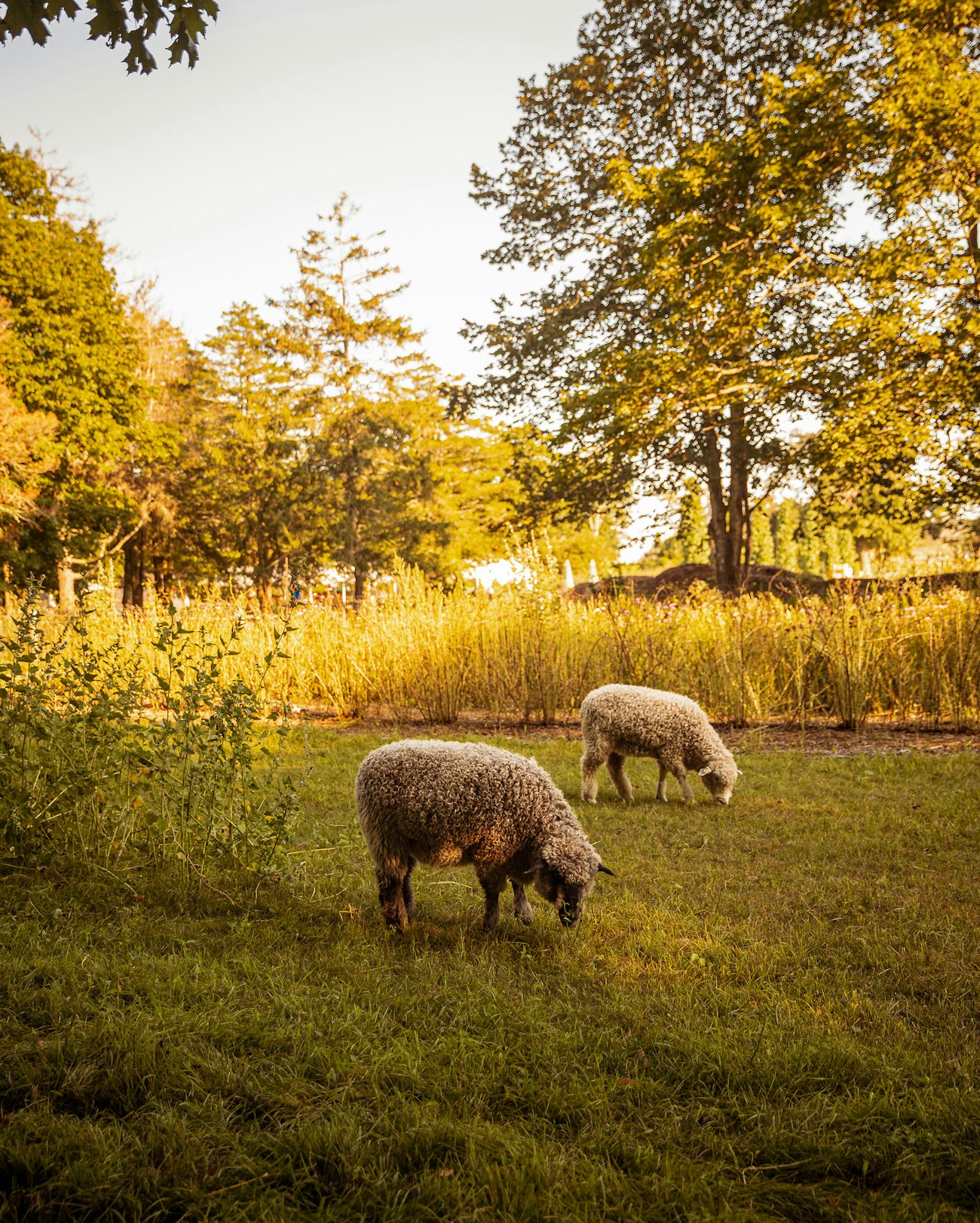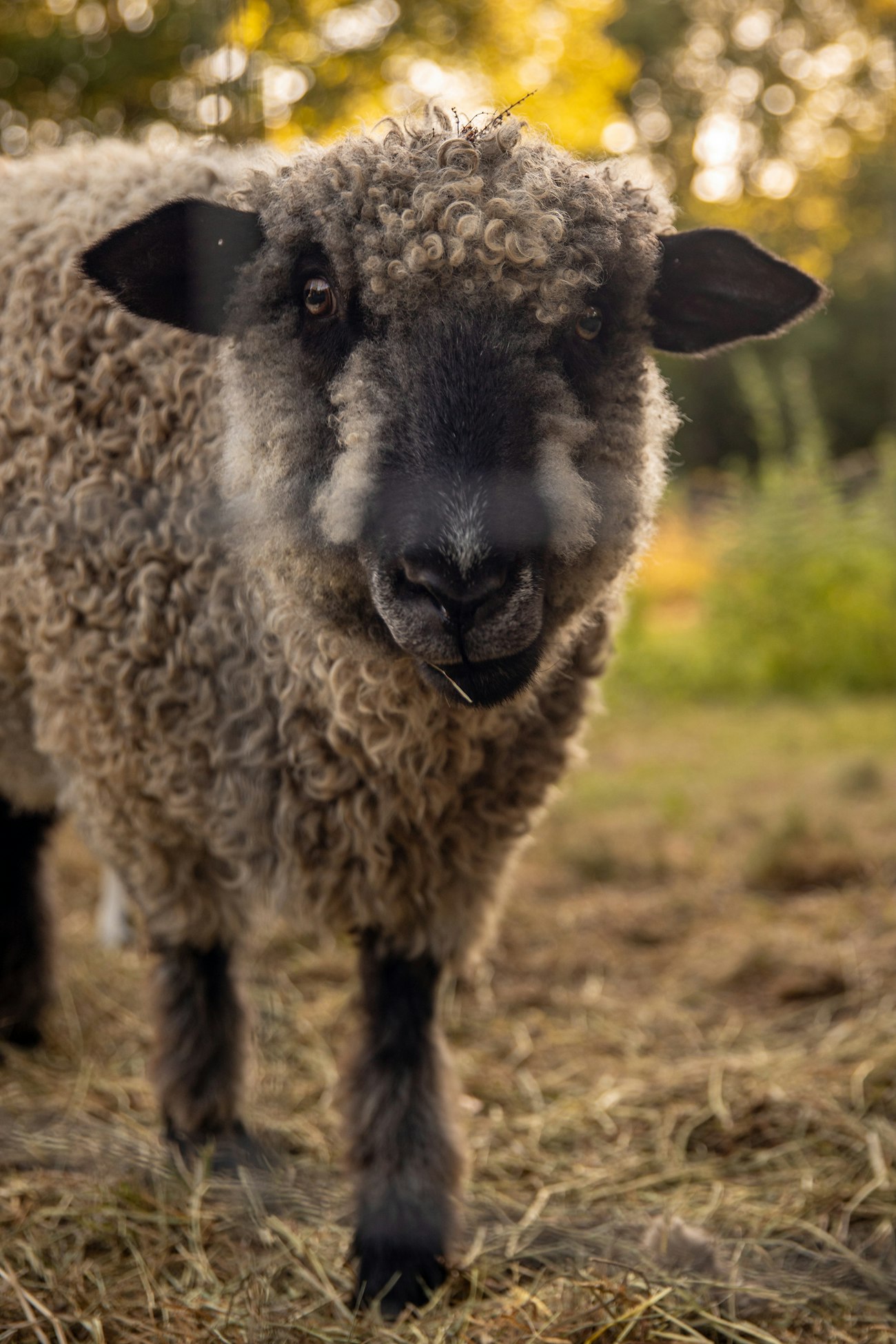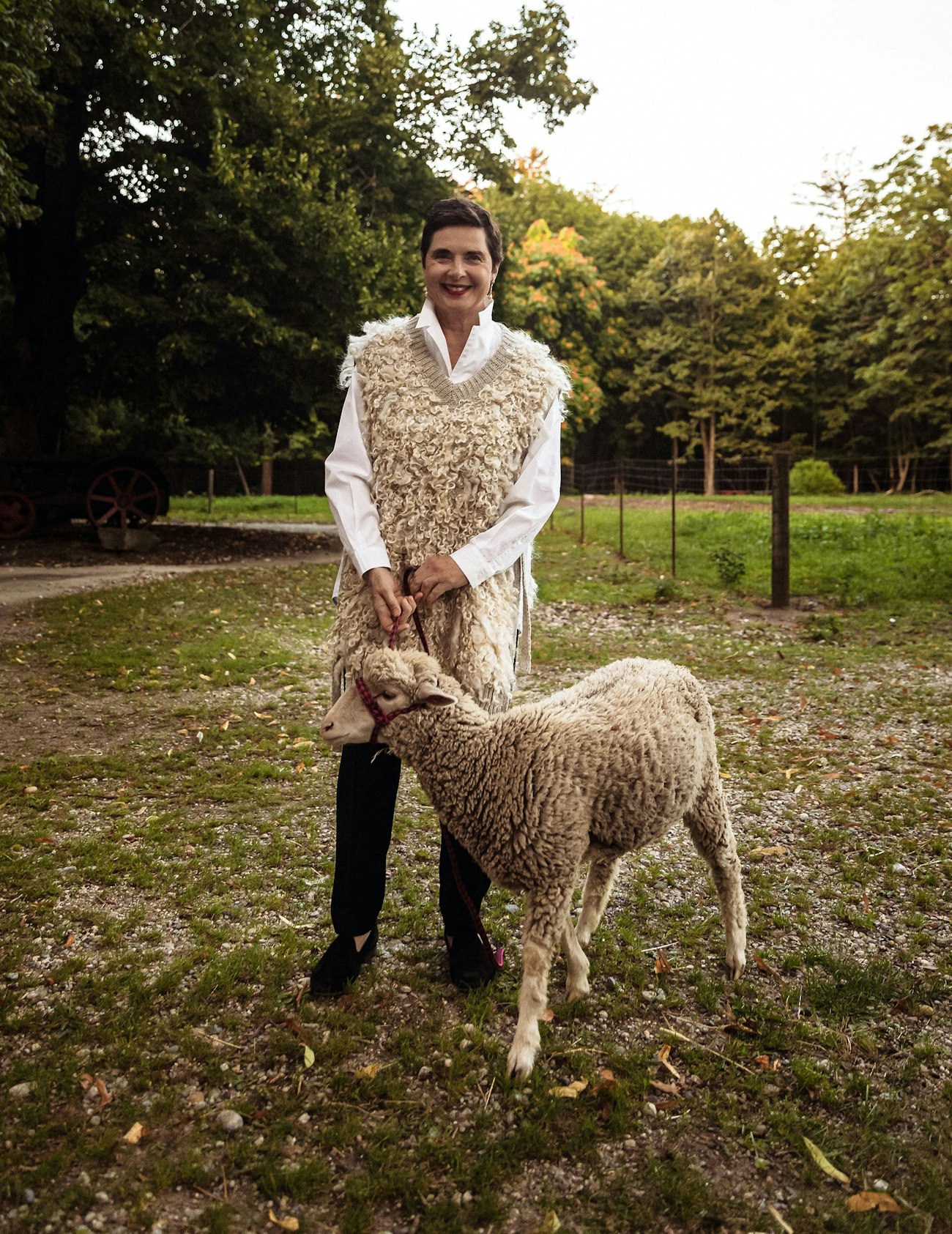Enjoy this extended article by Carol J. Sulcoski from the premier issue of Farm & Fiber Knits. “Farm & Fiber in Fashion” features a handful of companies and designers with a passion for sustainability and a love of Mother Earth who are bringing the farm-to-fiber movement to the fashion world, and vice versa.
What would persuade an award-winning actor to start tending livestock on a small New York farm? If you’re Isabella Rossellini, the answer is biodiversity and breed preservation. In addition to her other achievements, Rossellini holds a master’s degree in animal husbandry and behavior. Conservation and protecting species are a natural outgrowth of that degree.
Rossellini is also keenly aware of the dangers of monoculture. Industrial production favors raising one or a few breeds, whether livestock, vegetables, or flowers, owing to issues including disease resistance and scalability. As producers shift to a single breed (say, merino wool or Red Delicious apples), others may eventually go extinct. Rossellini’s Mama Farm in eastern Long Island aims to nurture endangered breeds of sheep, chickens, turkeys, goats, and more. Organic heirloom vegetables are also grown on the farm, helping protect plant biodiversity.
 Biodiversity and breed preservation play a central role on Mama Farm. Photos by Caroline Owens, courtesy of Mama Farm, unless otherwise noted
Biodiversity and breed preservation play a central role on Mama Farm. Photos by Caroline Owens, courtesy of Mama Farm, unless otherwise noted
In a sense, moving to a working farm is full circle for Rossellini. She grew up in a coastal town in Italy where chickens, pigs, and sheep were raised by local farmers and the line between “city” and “country” was less distinct than in America. When she learned that a 28-acre tract in Brookhaven, Long Island, needed saving, Rossellini jumped at the chance. The developer who originally purchased the land found environmental regulations and the thick shrubby undergrowth to be too big a challenge, abandoning the idea of building houses on the site.
About 23 acres of the property remain unworked due to a conservation easement. Rossellini and her daughter, Elettra Wiedemann, built Mama Farm on a portion of the rest. What started with a box of heritage-breed chickens soon grew to a flock of 100-plus. When Rossellini learned that a museum restoring an old tapestry couldn’t source the original type of wool because the breed was extinct, she became motivated to protect heritage-breed sheep. Mama Farm is now home to a small flock of rare breeds including Lincoln, Santa Cruz, and Jacob. The sheep are named after iconic female artists: There’s a Duse, a Garbo, and a Kahlo.
 Meet Kahlo, a Lincoln Longwool from Mama Farm.
Meet Kahlo, a Lincoln Longwool from Mama Farm.
When you tend sheep, you end up with wool; sheep must be sheared regularly to remain in good health. Awash in wool, Rossellini turned to the Parsons School of Design. Together they created a farm-to-fashion program enabling graduate students to learn about endangered breeds, showing how wool goes from sheep to clothing. Part of the major is a scholarship and residency program in which students can deepen their knowledge about rare breeds by staying at Mama Farm and incorporating its distinctive wool into new designs. Several Parsons students have completed the program, including knitwear designer Katya Ekimian, whose bespoke wool gowns have appeared at high-profile events like the Met Gala.
 Rossellini is wearing the O’Keefe vest from Aisling Camps’s 2023 Mama Farm capsule collection.
Rossellini is wearing the O’Keefe vest from Aisling Camps’s 2023 Mama Farm capsule collection.
Rossellini’s collaboration with fashion brand Moda Operandi is another way to focus the clothing industry on diverse types of wool. Rossellini contacted Moda to help locate a designer interested in showcasing the unique qualities of Mama Farm wool. Brooklyn-based designer Aisling Camps was a perfect fit. Camps spent time at the farm, learning the process of spinning yarn from wool and getting to know the animals, their handlers, and the mill. Her 2023 capsule collection reflects her understanding and appreciation of the farm and its flock; for example, a tunic-length vest features the curly locks of a Lincoln sheep, carefully snipped and individually sewn on by the designer. A sweater and skirt set combine the wool from five different breeds, each in its undyed, natural color, artfully arranged in panels of different textures.
Rossellini’s daughter, Elettra Wiedemann, manages the enterprise as Mama Farm continues to evolve. A bed-and-breakfast now allows guests to enjoy longer visits to the farm. The farm is hosting weddings and other milestone events, while still producing organic heirloom vegetables, flowers, eggs, and wool. Just as important, ongoing programming educates more people about the need to preserve our biodiverse heritage.
For more information on the farm and its bed-and-breakfast, visit mamafarm.us.
Carol J. Sulcoski is a knitting author, designer, and teacher. She’s published seven knitting books, including Knitting Ephemera, which is full of knitting facts, history, and trivia. Her articles have appeared in publications such as Vogue Knitting, Modern Daily Knitting, Noro Magazine, the Craft Industry Alliance website, and others. She lives outside Philadelphia and teaches at knitting events, shops, and guilds. Her website is blackbunnyfibers.com.

